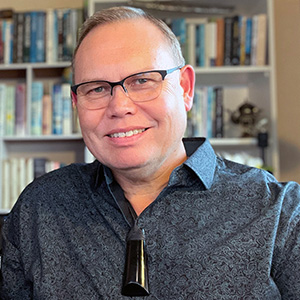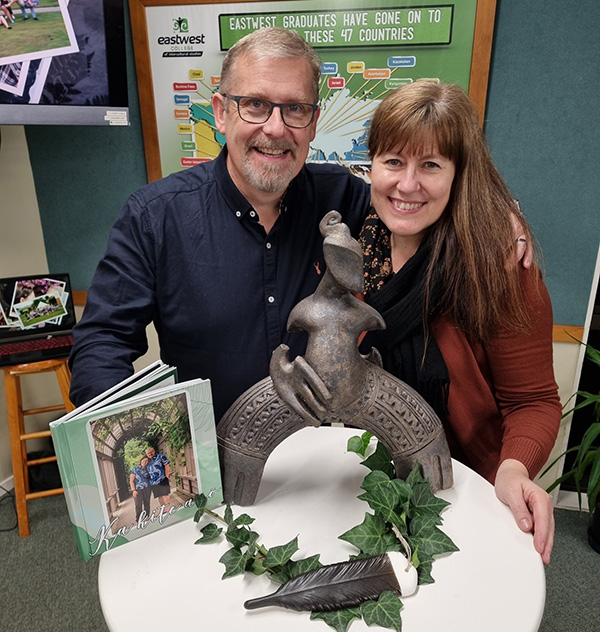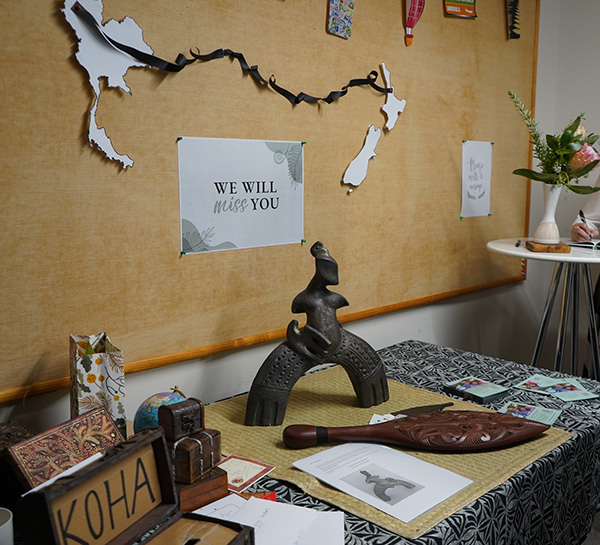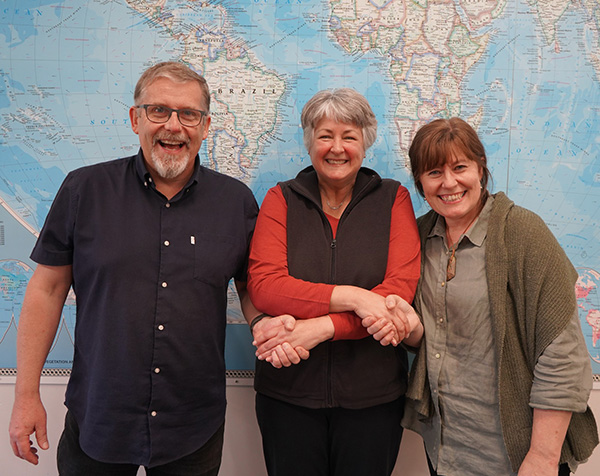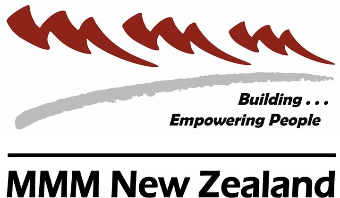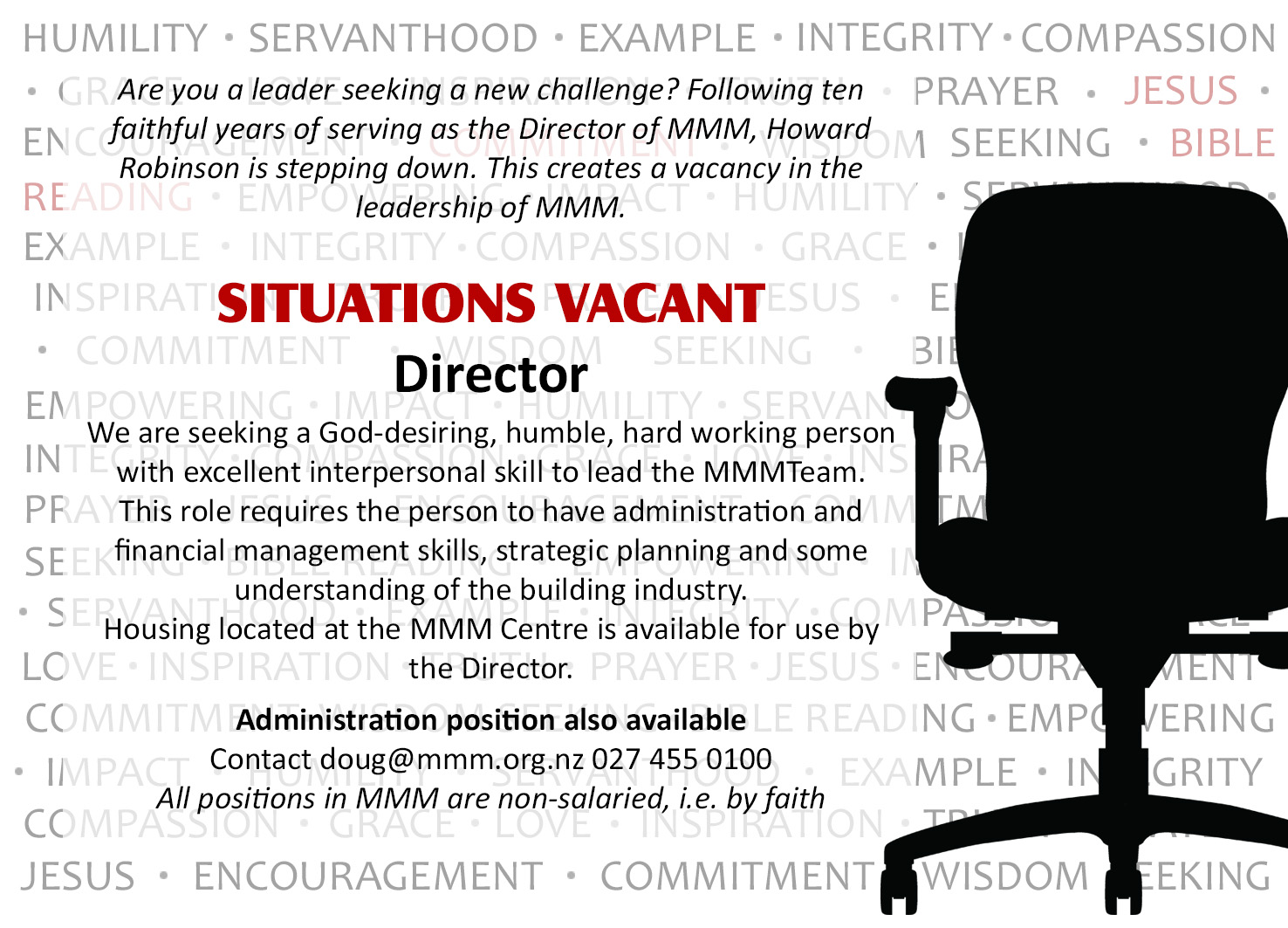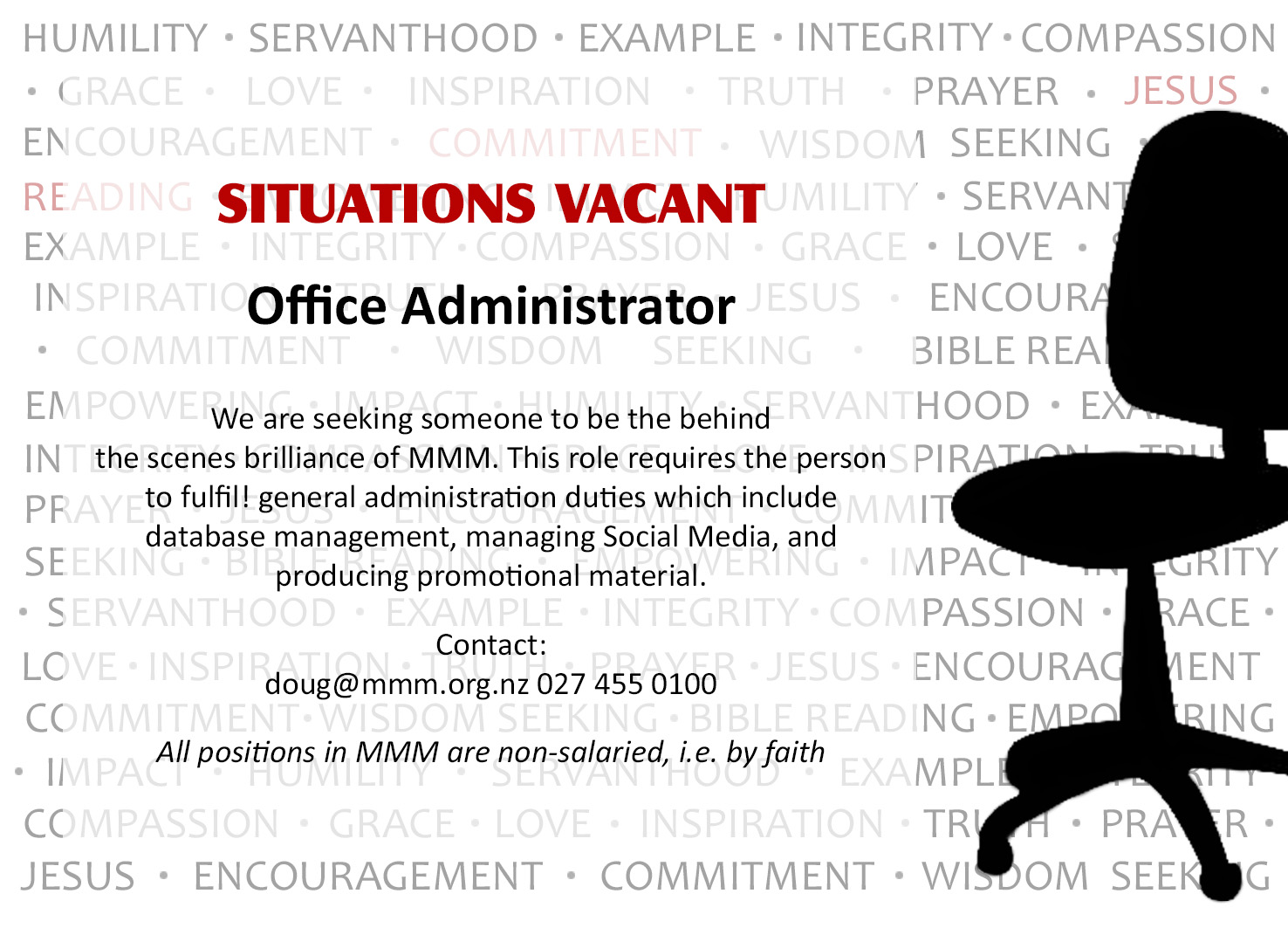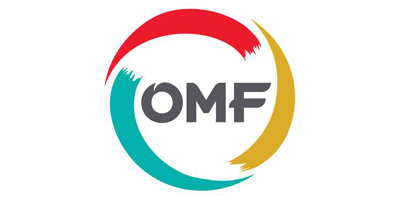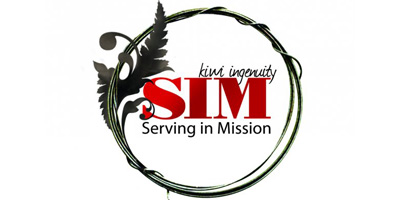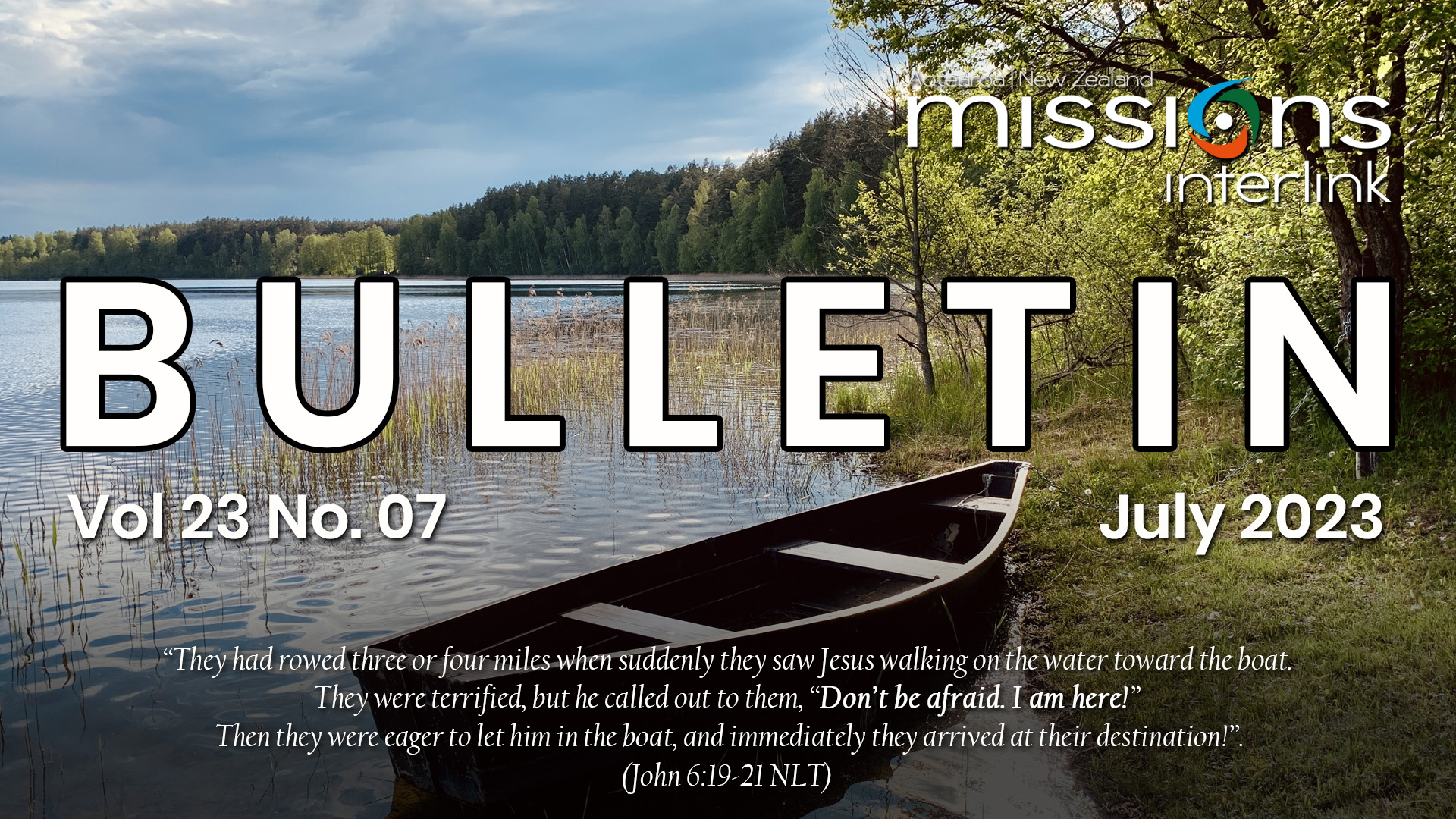
QUICK MENU
EDITORIAL
- Corrupted Directions
EQUIP
- Are Pioneer Missions Over?
- To Bless & Teach The West
- Introducing Renata Hanscamp
GO
- Greatest Mission Field
- Tips For Helping Missionaries
- The Wholly Bible
- Bible Month 2023
CARE
- Demystifying Mental Health
PRAY
- Contextual Prayer Strategies
- FEBC, ISV, MINZ, OMF, SIM, WBT
SPOTS
- Latest News. Events & Opportunities

EDITORIAL
CORRUPTED DIRECTIONS
By Dr Jay Matenga
Jay is the Executive Officer of Missions Interlink, Director of Global Witness for the World Evangelical Alliance, and Executive Director of WEA’s Mission Commission. Jay writes and speaks on missions related subjects globally. His blogs, articles, and other public contributions are made available for free on jaymatenga.com
This month’s whakataukī (proverb) is, “Ki te hiahia koe ki te whai i ō whāinga, kaua e mimi i te wai.” [If you want to achieve your goals, don’t pee in the water]. After more than 7 years of quoting various whakataukī, I made this one up. You can probably tell. It was inspired by the animated movie Moana, where the rascal Maui is teaching Moana the navigational secrets of the great mariners of Moana nui a Kiwa (Kiwa’s big ocean, named by Europeans the Pacific Ocean). At one point, Maui encourages Moana to discern the currents with her hand, detecting the subtle changes in temperature. She excitedly finds the warmer current only to discover Maui was relieving himself in the water! (All the kiddies go “teeheehee”.) One of my earliest memories of pool swimming as a young’n was being taught (by older kids) never to linger in a warm spot! Ew. It makes the chlorine cleanse worth a little burning in the eyes.
I figured the audience had seen the Moana movie, most of them being teachers and all, and I bargained that Maui’s mischievous misguidance would make for a memorable point. From the chatter afterwards, I wasn’t wrong. Leveraging the movie’s imagery, I noted that we needed to work for clarity (and purity) in our navigational discernment as we pulled on our metaphorical paddles together in-Christ to bring our New Creation destination towards us. As I explained back in 2017 and again in my May 2022 editorial, I drew on the paradigm-flip of indigenous Southern ocean mariners who visualised themselves in the waka (canoe) as a fixed point, pulling their destination towards themselves, as opposed to propelling toward their destination. It’s a subtle but significant shift.
I encouraged conference attendees to: 1) maintain a clear sense of our destination, and 2) to prioritise that which will help us achieve it — to pull it towards us. The shalom Kingdom of God (also known as New Creation) is our destination. Contrary to popular Christian belief I am not speaking of heaven, that’s the dwelling place of God et al, but rather bringing heaven to new earth, the dwelling of God in its fulness amongst Spirit-renewed humanity. This is the destination we are to make known to all nations, declaring that Jesus is the Way to it. That’s all well and good, but what ought we to prioritise as we pull that destination towards us? Here, I encouraged the audience to consider afresh the oft-used whakataukī, “He aha te mea nui ki tēnei ao? Māku e ki atu, he tangata, he tangata, he tangata.” [What is the most important thing in the world? I would reply that it is people, it is people, it is people.] This famous quote is part of a longer conversation concerning the significance of the flax bush, a symbol of family, with “he tangata” repeated the customary three times. So, I interpret the proverb to refer to community—relationships, in other words, are the most important thing in the world. This ought to be our upmost priority as we draw our destination towards us.
It should be of no surprise to readers that I was speaking of the foundation of missions. It is clearly evident through Scripture that God’s purpose, God’s good, pleasing and perfect will, is that we love one another and work to maintain a deep integrated unity. There lies shalom, there God commands a blessing (Psalm 133), from that reality the world will know and believe that the Son was sent and sends us to bring about New Creation (John 17:18-26). Our relationship mahi (or work) is like our pulling on the paddles to bring New Creation toward us. It is making every effort to keep the unity of the Spirit in the bond of peace (Ephesians 4:3) and carrying out the ministry of reconciliation between humanity and God (2 Corinthians 5:18-19) as well as between humans in our differences (2 Corinthians 5:16-17). As N. T. Wright interprets 2 Corinthians 5:17, “If anyone is in Christ, New Creation”—there is no defined subject there in the Greek, no ‘he is’ or ‘she is a new creation’, just evidence of New Creation when we are reconciled to one another in-Christ.
But, what does this mean in real terms? How are we to ensure we remain in the current of God’s Spirit such that we remain on course? I provided the NZACS conference with a fundamental question we should all be asking in any given situation. It is the rudder of our waka and the Southern Star navigational constant that will ensure our true destination is approaching, rather than some false version of it. That question is this: “What is the most relationship-enhancing thing I can do right now in this situation?”
That’s it. That’s our ethical constant. I am not talking about what some have called ‘situational ethics’, where whatever you think love is becomes the deciding factor. No, love as the world knows it is far too loosey goosey to be an effective navigational aid. Yet it is love, but as Scripture defines God’s love (chesed/agape), because love in Scripture is the sum total of God’s character (1 John 4). In many ways the kupu Māori (Māori word) ‘aroha’ better expresses God’s love than what has devolved as the English meaning. Aroha speaks much more of merciful loving kindness in heart and action, with a disciplinary edge to keep us aligned with the benefit of community, rather than a self-centred my-will-be-done type of live and let live tolerance. So, the most relationship-enhancing or loving thing might actually be restraint, stopping people from self harm or prohibiting actions that would be detrimental to the wider community. An aspect of God’s love is, after all, self control (see the Galatians 5:22 attributes) and, ideally, we ought to be restraining ourselves from antisocial behaviour. But, and here’s the point, restraint must be done in the context of trusting relationships, in order to maintain those relationships, to benefit everyone involved, and maximise the good that emerges from the relationships. Disembodied or codified rules do not do that, and that is the difference between rigid religion and true religion, dead and living faith.
What then corrupts our navigational direction? What inhibits us from achieving our ultimate goal? Surely it is behaviour that breaks relationships. Such behaviour veers us off course. We start to pull a different destination towards us. Our participation in God’s mission then is not so much all the mapping and managing, plotting and planning to try and bring our New Creation destination into our now/not-yet reality, but the relational collaboration required to provide evidence of New Creation right here, right now, wherever we are. As I said to the NZACS conference, we’re all participating in creating teaser trailers of the full movie that is about to be released—a glimpse of the coming feature—to entice more people to join us in the theatre of God’s loving kindness. To that end, with all our good intentions, dreams, and visions, let’s be sure we’re not corrupting the current as we pull Together: On Mission.

THE PIONEER MISSIONS ERA
IS IT OVER?
By Dr Karl Dahlfred
Karl and his wife Sun have been missionaries to Thailand since 2006, serving with OMF. They have been involved in church planting, English teaching, theological education and writing/publishing. Later in 2023 Karl will take up a teaching position at Chiang Mai Theological Seminary. Karl has a PhD in World Christianity from the University of Edinburgh and is an ordained minister in the Presbyterian Church in America (PCA). This article is curated from Karl’s blog, 24 April 2023.
However, if we fast forward 100+ years, it seems both ridiculous and ethnocentric to talk about “the Christian world” and “the non-Christian world.” Europe today is quite secular and North America’s Christian heritage is fading quickly. Two-thirds of those who profess the Christian faith live in Asia, Africa, Latin America (and Oceania). The world is changed. No longer is the missionary task of the church a question of “the West to the rest.” Rather, as Allen Yeh has put it, twenty-first century mission is from everyone to everywhere. Around the world, there are vibrant churches on every inhabited continent and the number of truly unreached peoples is rapidly diminishing.
Westerner believers can no longer assume that they are “the missionaries” whose job is to bring the gospel to the rest of the world. They can no longer assume that if they are not working among a particular country or people group, then nothing is happening. Western missionaries today would be short-sighted to go into a country and get to work “reaching the lost” without touching base and coordinating with local churches and believers to find out what they are already doing and how foreign missionaries can fit in to what is already happening. Today is an era of partnership.
So, is the era of pioneer missions over? Is there no place in the world today for foreign missionaries, especially Westerners, to do pioneer cross-cultural evangelism among unreached people groups? Should foreign missionaries primarily focus on supporting roles, partnering with indigenous Christians who are now at the forefront of pioneering among their own people?
The answer is yes and no.
On the one hand, there are still a massive amount of people in the world today who have not heard of Jesus Christ and live in places where there are no Christians and no churches. Somebody needs go tell them about Christ. Thailand, for example, has a population of over 66 million people and only about 500,000 Protestant believers. The country is about 95% Buddhists and there are many towns and villages without a single church. Who is going to proclaim the good news in these places? Thai and tribal churches are making efforts to do so but it’s a big country with a lot of people. There is plenty of work to go around. There are many similar situations around the world where a good case can be made for the continuing presence of foreign missionaries engaged in pioneer evangelism and church planting.
On the other hand, even among mostly unreached people groups, churches exist. They may not be large numerically when compared to the overall population. But they know the language. They know the culture. And in some cases, there are three or more generations of local believers with established denominations, networks, schools, seminaries, publishing houses, etc. The national level leaders have a good grasp on where ministry is happening, where it is not, who is doing what where, and what kind of help they need to push forward in evangelism, discipleship, and church planting and development. In these circumstances, it would be foolish for a foreign missionary to enter the country and make plans on how to reach the nation for Christ without learning what Christian ministry is already happening, who is doing it, and how foreign missionaries might come alongside indigenous believers and other missionaries who are already there. We live in an era of partnership. Believers who feel called to proclaim the gospel in another part of the world have a moral obligation to find out what is happening on the ground in the place where they are working and to seek out opportunities for partnership with local believers when possible.
So where does that leave foreign missionaries? Should they focus on pioneer evangelism? Or slot into other roles that indigenous churches want them to do?
There is no “one-size-fits-all” answer but as much as possible, missionaries should seek to collaborate with local churches to do tasks that they are best suited for, which may not be pioneer evangelism. Sometimes local believers want to launch a church plant or do outreach in a new area and could really use teammates. Foreign workers can fill that role.
Sometimes foreigners have skills and experience in translation or publishing, theological education, pastoral counseling, IT and computing, or some other technical area that meets a need of local churches.
When I was recently teaching at a Thai Bible study picnic in central Florida, the Thai pastor who invited me told the gathered group of Thai believers about our upcoming move back to Thailand where I will teach at Chiang Mai Theological Seminary. He explained that Thai people are better at sharing the gospel with other Thai people than expatriate missionaries are. Thai are more receptive to another Thai coming into a neighborhood than a white foreigner.
And I thought to myself, “Yes, that’s true.” I like talking with Thai people about Christ and I enjoy opening the Scriptures with non-believers. And I have done so many times in Thailand. But all things considered, Thai Christians know the language and the culture far better than I do. They have an insider status that I don’t. Can God use a foreign worker to reach people with the gospel, disciple them, and plant churches. Sure. God can do anything. But is that the best full-time role for me serving God and his people in Thailand?
In the mind of our Thai pastor friend, teaching and training Thai Christian leaders at the seminary level is a good role for a missionary. Given my background, education, and previous experience, I can probably do more for Thai churches through formal and informal training of leaders than I could by devoting all my time to grassroots cross-cultural evangelism. That was the assessment of this Thai pastor, and I am inclined to agree. When we are in Thailand, I always want to be involved in local church ministry with Thai Christians, but I also want to teach and write to build up Thai churches and leaders.
I would not want to dogmatically say that the era of pioneer missions is over because it is not. But the roles of foreign missionaries are changing. We live in an era of collaboration with believers around the world. Missionaries still go from west to east to do evangelism and to plant churches, but they also go from east to west and south to north to do the same.
Whatever it is that missionaries do in today’s world, no matter where they are from, or where they are going, they need to be aware that God has gone before them and has likely already started something there. And when that’s the case, how can we best partner with God and the people of God around the world? That’s the question that we need to ask.

MAJORITY WORLD CHRISTIANS
AND HOW THEY CAN BLESS & TEACH WESTERN CHURCHES
By Dr Chris Howles
Chris is from the U.K. but has served as Head of Theology at Uganda Martyrs Seminary Namugongo since 2011. He has a DIS (doctorate in intercultural studies) and is founder of the mission resources website From Every Nation. He is married to Ros, and they have three children, all of whom are either in or approaching their teenage years! This article is curated from the Upstream Collective blog, May 15 2023.
But let’s try and make it more understandable. Imagine a sphere covered in dots that are evenly spread out. Now, draw lines between each dot in all directions, creating a honeycomb-like pattern (think of a soccer ball’s patchwork). This lattice structure is strong because every point is well-connected to the others.
Although we in the West have been accustomed to giving, going, training, and blessing others for the past couple of centuries, we cannot consider ourselves a full part of the robust and beautiful “honeycomb” global church unless we are also receiving, welcoming, learning, and being blessed by others. As the apostle Paul explains, each part of Christ’s body is in need of the others: “The eye cannot say to the hand, ‘I don’t need you!’ And the head cannot say to the feet, ‘I don’t need you!’ . . . Now you are the body of Christ, and each one of you is a part of it” (1 Corinthians 12:21, 27). That is true within a local congregation and also on a global level—we need one another!
But what does this beautiful reciprocity look like in practice today? How can Western churches receive and benefit from the blessings and teachings of their sisters and brothers from other parts of God’s global church? Although entire books could be written on the subject, here are a few suggestions to set us on the right path.
1. Examine Our Attitudes
To truly foster global relationships, Western churches need to embrace a humble posture. We must recognize that we’re not the top stone of a pyramid from which everything flows down, but rather, we’re just one part of a honeycomb-shaped lattice and, as such, codependent on others for our spiritual and theological well-being. Unfortunately, this can be difficult for some Western Christians to accept. Our culture tends to promote individualism and self-sufficiency, making it easy for us to believe that we can do it alone. Sometimes, this attitude stems from a misplaced sensitivity toward others in the global church (“I don’t want to burden you”), while other times the motivations can be more troubling (“I’m better than you”). Regardless of the cause, we need to identify, confess, and repent of any prideful or condescending attitudes we have toward those who come from different contexts and cultures. Only then can we move forward and foster genuine mutuality in our global relationships.
2. Expand Our Horizons
It is good and right to be rooted in your local church family, and being led and fed by those who know and love us personally is a profound privilege. But we should also strive to open ourselves up to new perspectives from faithful Christ-followers outside our immediate reference points. Reading books or listening to online sermons by African believers on church growth and mission, Chinese believers on Christian endurance and zeal, South Asian believers on faithfulness amidst pluralism, and Latin American believers on gospel engagement in the public sphere can broaden our understanding of God’s work in the world and deepen our faith in him.
3. Extend Our Partnerships
Many of us belong to churches that already send and support mission partners cross-culturally, but we can extend those partnerships by involving national Christian leaders from our mission partners’ host settings. We can invite these friends to preach on Zoom, write for the church newsletter, chat with small groups, or even visit in person. Churches that extend their partnerships in this way often speak of the tremendous gift it is to learn from faithful gospel partners from different contexts. It’s important to make it clear from the start that we want to learn from their ministry and gospel perspectives, rather than exclusively the other way round.
4. Exclude Our Desires
Christian believers should love to help and serve others. That’s a Spirit-driven longing, and it should never be diminished or devalued. However, there are times when the most significant act of service we can offer is to allow ourselves to be served by others, for doing so embraces and expresses codependence, vulnerability, and trust. For instance, instead of going on a short-term mission trip with the sole purpose of doing something useful for them, we can adopt a culture of “learning” from our host partners. By genuinely listening to and learning from national believers, understanding their concerns and perspectives, praying for them, and subsequently sharing what we’ve learned once we’re back in our home setting, we can experience transformative benefits for everyone involved—the visiting team, the host partner(s), and the sending church. This is a truly blessed partnership! In Uganda, I have witnessed this approach succeed when staff and students from a theological seminary in the U.K. visited the Bible college where I work. They spent much of their time sitting in lectures, Bible studies, and seminars led by Ugandan staff and students. Everyone involved benefited significantly from this exchange, with many participants commenting on how beneficial it was to travel far to sit, listen, and learn.
Western churches, now have a unique opportunity to learn and be blessed by national partners worldwide. To do this, we must examine our attitudes, expand our horizons, extend our partnerships, and even exclude our desires. It may well be that the term “truncated icosahedron” is an unnecessary mathematical mouthful, but that which the shape represents—mutuality, interdependency, reciprocity, friendship, and partnership from everywhere to everywhere—speaks to the beautiful and joyful opportunities that we have today to receive, learn, and be blessed by our gospel partners across the world.
In 1987 Renata departed New Zealand with every intention to return after about two years. That was 35 years ago! God clearly had other plans (Jeremiah 29:11). After spending more than 25 years working and studying in the USA, Japan, and Germany, God eventually convinced her that she was ready to be a “missionary”.
Along the way, Renata served at the Bodenseehof Bible School and Conference Center (part of Torchbearers International’s ministries) in Germany and studied via Columbia International University (both in the States and in Germany), before landing at Cornerstone MTC in Beugen, Netherlands. She has earned a BSc General Ministries; MA Intercultural Studies/Teaching English as a Foreign Language; MA International Theological Education; EdS (Educational Specialist, pending).
She joined WEC in 2014 then joined the community at WEC’s Cornerstone Missionary Training Center in the Netherlands, serving as their Academic Dean. God finally led her back home this year (2023) where she has the privilege of continuing to serve with WEC, this time as Principal of Eastwest College of Intercultural Studies in Gordonton, Waikato. In her leisurely moments, Renata loves to read, sew patchwork and walk for leisure.
Over the past month many of us have been able to farewell former leaders of Eastwest College, Martin and Joyce Cambpell and thank them for their contribution toward encouraging collaboration and strengthening participation in God’s mission from and within Aotearoa New Zealand.
Martin took up the role of Principal in 2014, after serving in cross-cultural Christian work for almost two decades, mostly in Central Asia with Joyce and their three sons. Joyce carries a special concern for the care of mission personnel and together they instituted the annual TCK Camp hosted at Eastwest College.
Martin and Joyce will soon take up international leadership responsibilities for WEC, based in Chiang Mai, as Deputy International Directors.

A GREAT MISSION FIELD
WITHIN REACH
BY PAUL TABRUM
Paul is based in the Waikato and is part of the OAC Ministries team.
Over this last month, 5 men have trusted Christ and so discipling can now begin. Having been freed from sin’s condemnation, our work with these men is around helping them grow in Christ, training them to be looking at Jesus, the author and finisher of their faith. By so doing they begin to discover a freedom from sin’s power. As with every Christian, this transforming work by the Holy Spirit is ongoing and at different rates of change for different prisoners. Once lawless, they begin to learn loyalty to their new Master. From resisting Jesus to cooperating with Him as they hear His voice from the scriptures. This new life in Christ translates into a new power to follow Him and as with every Christian, these men have peace with God but are in a fight. No longer against rival gangs or enemies in the flesh but against satanic forces. The word of God is their sword, the Lord Himself is their strength and their newfound humility is their victory over provocation. Failures are common but so is repentance. Often this discipleship training goes on in courtyards in sight of the other prisoners. As the unsaved train to gain physical strength, the believers train in godliness. They need our prayers.
Some years ago, when leaving one of the pods, a man called out to me, “hey mister, why don’t you come over to us”? I yelled back, “I’ll see you on Wednesday”. That Wednesday I went to see him. A guard let him out and we spent two hours in the Bible. That day, he passed from death to life as he bowed his head and received the saviour. God is at work in the lives of precious people.

VISITING MISSIONARIES?
TIPS FOR SENDING CHURCHES & SUPPORTERS
BY ELLEN LIVINGOOD
Ellen founded Catalyst in 2005 and continues today as its director. Catalyst helps mission organizations and local churches to expand and improve their global efforts. With unique expertise built on wide experience in both agency and church, Ellen brings to Catalyst an extensive background in communications, mission agency administration, mobilization, and consultation. This article is curated from Catalyst Postings Newsletter, June 2023 (Vol 18, 6).
When a missionary has been gone for two or more years, they usually experience what we call reverse culture shock because they discover that “home” is now quite different from what it was when they left for the field. The missionary’s perspective undoubtedly has also changed a lot while they were away. We may think that Zoom and Facetime keep workers abreast of changes in their sending country, but many report that despite frequent online conversations, culture shock is actually greater now because change is happening faster than ever before.
If you support missionaries, you carry a responsibility to help global workers understand the changes in your church, especially those that impact their messaging, in order to help them design their time with you for the greatest possible impact. Below are eight topics to discuss with your missionary early in their home assignment or even before they return from the field.
1. How has your church changed since your worker last visited?
Even those of us who attend church regularly often feel like we can’t keep up with all the changes. No wonder global workers struggle to grasp the multitude of shifts they encounter when they return after years immersed in another culture! See below our list of potential areas of changes.
Encourage your missionary to ask questions, and don’t be nonplussed if they express criticism or frustration; remember that accepting change is hard. Consciously focus your explanation to highlight the positive or at least be neutral about transitions, even if you may also be struggling with embracing all of the changes you are describing.
CHANGES TO PROCESS WITH YOUR MISSIONARY
You might also want to ask a global worker who has been back in your country for a few months to suggest some of the changes they found difficult to understand or adjust to when they first returned.
- What percentage of the congregation has begun attending since your worker was last with you? Have a number of people stopped attending?
- What changes in staff and other leadership roles have occurred?
- What are the largest and smallest age brackets represented on a typical Sunday? Has the ethnic/cultural makeup of your congregation shifted? If so, how have these changes made a difference?
- How has communication changed? Are announcements now presented via screen rather than on a printed bulletin? Are missionary letters now circulated electronically rather than on paper?
- How has your church programming changed? What are you no longer doing that you did previously? Why? For example: Has the design of worship services been impacted by cell phones and online streaming? If prayer meeting has been replaced by intentional times of intercession in small groups, give the rationale. If Bible study groups have been restructured, explain the transition. If your missionary loved the “old style” programming, such changes may seem to be a weakening of biblical focus. Outline how changes have made your church’s impact greater than ever.
- Have you changed your vocabulary, especially regarding missions? For instance, do you use the term “outreach” instead of “missions”? Or renamed the “missions committee,” the “GO team”? Again, explain the why.
2. Why is platform time for visiting missionaries so limited?
Many workers serve in event cultures rather than time cultures, meaning that worship services may go on for hours. Returning to a context where every aspect of the service is timed down to the minute may feel artificial, restrictive, and even disrespectful of the Holy Spirit’s freedom to lead.
It may be helpful to explain how fine-tuned scheduling facilitates the work of those who must coordinate multiple services, online streaming, and other complex program elements. Most important, emphasize that today a missionary’s influence flows through personal relationships. Their platform time is most effective if it piques interest in later, individual dialog.
3. What do you think your people are most interested in hearing from your global worker during their “moment for missions” in the worship service?
After being immersed in a totally different context for an extended time, it may be difficult for your worker to put themselves in the place of someone in your congregation and identify what will effectively connect with them. Provide some concrete examples of what grabs your congregation’s attention. Suggest that this is not a time to try to summarize years of ministry but to focus on one story of impact. You might ask a teacher or trainer from your congregation to make a short video to share with them about evolving communication styles, including an illustration or two of how they engage younger generations’ interest.
As a church liaison, you must manage the communication context to best showcase your worker’s ministry. An interview approach to platform time may be most effective. A couple of strategic PowerPoint slides also may help. If someone in your church is willing to use their professional graphic design skills, offer their services to help produce these, if your worker wants assistance.
4. What classes, small groups, and individuals should they visit?
Unless your worker is already assigned to a discipleship or other training class or small group, choose two or three in advance that are a good match based on life phase, location/type of ministry, etc. Provide your worker with contact information, meeting time, and location. If your missionary is visiting during the holidays while regular sessions are paused, see if there are group get-togethers they could attend. Encourage the missionary to also visit individual prayer partners. These visits will deeply encourage both intercessor and missionary.
5. How can your missionary benefit, and benefit from, their support team during this visit?
You may call them a Barnabas team, care team, or advocate team, but regardless of the title, these are the people who have volunteered to maintain your congregation’s communication with, and care for, your missionary. If the team is functioning well, they are already aware of the worker’s plan to visit and organizing meet-ups. If not, review with your global worker the role you have designed for that team to play. Brainstorm ways the relationship can be even more beneficial to the worker, the team, and your church. Encourage your missionary to be proactive in meeting with and expanding the team, if necessary.
6. Are there specific ways you could serve your global worker while they are with you?
In advance of their visit, develop a list of possible services that your church could provide and forward it to your missionary. With their feedback, include desired services in their scheduled time with you. Here is a Planning Tool for ideas.
7. Is there a difficult conversation you need to have while this global worker is with you?
Talking about problems or conflicts is always handled best in face-to-face dialog. If you have concerns about your worker’s ministry or personal/family life, are dissatisfied with their lack of communication from the field, or feel that other expectations have not been met, you need to broach these topics while you are together. Also, if your church anticipates potential changes in your financial support for them between now and the end of their next term, openly discuss this topic now in person. Reserve sufficient time to carefully listen to any concerns they may have too.
Confrontational conversations are never easy, but this is part of your responsibility as a leader. Talking face to face rather than communicating via email or even online allows you to use tone, facial expression, and body language to express love and care. Be sure they know that you value them as a person and appreciate their service even if you have to bring up painful topics and work through misunderstandings.
8. How can you very intentionally celebrate your missionary and their ministry?
Global workers do not want to be plaster saints put on pedestals, but they do need to hear your words of affirmation more than you know. Unfortunately, many workers approach church visits fearing that supporters will judge them for not producing enough ministry fruit or for not measuring up to some unspoken standard. Be prepared to name specific things that you appreciate about your missionaries. Express these both when they meet with your missions team and, if all possible, in front of your entire congregation.
BY MURRAY SALISBURY
Murray and Ruth Salisbury are sent from Fenton Park Bible Church in Rotorua, now based in the UK. Murray is a Linguistics Consultant with SIL International (since 1993) and serves in many countries throughout the world, including the Far East, Nepal, India, Africa, the South Pacific, the former Soviet countries, and Jerusalem, lecturing and directing translation of the scripture from Hebrew into local native languages. This article is replicated with permission from Wycliffe NZ’s Living Words magazine, Issue No. 15.
And who on earth would want to start reading a book three quarters of the way through? On the road to Emmaus, Jesus modelled beginning at the beginning: “And beginning with Moses [the first five books of the Bible] and all the Prophets, he explained to them what was said in all the Scriptures concerning himself” (Luke 24:27).
So, how can I stand before the Bible’s Author one day and say that I only gave people the last part of His book? Paul’s conscience was clear before the Ephesians: ”for I did not shrink from declaring to you the whole counsel of God” (Acts 20:27).
An important reason for translating the whole Bible is that the people themselves are crying out for it. They want the whole story—the whole revelation of God!
Jesus commissioned us to go and make disciples of all nations. Disciples, not converts. How can we make disciples without giving them the best discipleship resource ever written —the whole word of God? After all, when Paul wrote that “All Scripture is God-breathed and is useful for… training in righteousness” (2 Timothy 3:16) he was talking (mainly) about the Old Testament because the New Testament had not yet been collated and canonised as Scripture.
It is easier for us Westerners to jump straight into the New Testament because our post-Christian societies are built on Old Testament core beliefs. We take them for granted but they are not universally held. We have the Old Testament to thank for concepts like freedom, justice, compassion, faith, individual rights, personal responsibility, history, linear time, revelation, ethics, impartiality, and absolute truth.
These ideas are not just taught in the abstract. They come to life in the stories and experiences of real individuals. For many peoples around the world, seeing God act in the lives of real people is a much more effective way to learn what He is like. Paul could use more abstract teaching because his audiences included many who already knew the Old Testament context.
Let me surprise you: I personally know individuals who were first captivated by either Ecclesiastes or Job—and then wanted to read more. Dare we presume to predict which parts of Scripture will do this for others?
The Binumarien people of Papua New Guinea only became interested once the very last part of the New Testament was translated. Kiwi translator Des Oatridge had left the genealogies of Jesus to the end because he knew they did not keep their own genealogies. But when Des and his team had finished the long list of foreign names, the team hurried away to call the whole village to hear it read. They all became more and more excited the longer the list went on. “Wow! All the rest of this book must be true after all,” they said. “Because no one would take the trouble to list all these ancestors if they were not talking about a real person.”
Surely, the above motivations are already enough. But here are four more big reasons…
- New Testament writers—and Jesus Himself—clearly teach that the New Testament was not meant to supersede the Old Testament but to complement it and fulfil it.
- New Testament writers also confirm the ongoing authority of the Old Testament by regularly quoting it as their authority for what they are teaching.
- Prophecies about 300 details in Jesus’ life and death, written down hundreds of years before He came, powerfully testify that the Christian faith is true. No other religion can do that!
- The Old Testament gives us the context for a fuller understanding of the New Testament. It adds essential information about the history, culture, and religious practices of the people of Israel. Without the Old Testament, readers of the New Testament have no framework to understand what is meant by God’s covenant, the law, sacrifice, purification, priests, the tabernacle, the temple, and circumcision.
For all these reasons, and more, the demand for Old Testament translation is increasing faster than any of us can keep up with.
There is still much to do even though I have spent the last 33 years:
- Retraining New Testament translators for Old Testament translation – in Jerusalem and other places
- Teaching 137 courses and workshops to about 1700 people—online and in 46 countries around the world
- Instructing and mentoring dozens of qualified consultants to do the same.
“Ask the Lord of the harvest to send out workers” (Matthew 9:38) to join the task of giving the whole Word to the whole world.
For God’s glory. Amen.

IT’S BIBLE MONTH 2023
FREE RESOURCES TO USE DURING JULY
BY BIBLE SOCIETY NZ
The Bible Society’s mission is to help make the Bible accessible to everyone and to encourage interaction with it.
Our mission at Bible Society is to help to make the Bible accessible to everyone and encourage interaction with it. To help fulfil our mission we have a range of resources and events that are aimed at distributing the Bible and encouraging more people to be actively reading it. One regular event at Bible Society is Bible Month. Last year our theme for Bible Month was “The Bible is Hope”, a very necessary message with global events at the time and the need for encouragement that the Bible brings. For July 2023 the theme is “The Bible is Life”, an important message sharing the Biblical view on life and its meaning.
The resources we have made available to celebrate Bible Month are designed for church leaders, small groups and individuals wanting to build on their relationship with the creator, author and sustainer of ‘Life’. The Bible is filled with verses and promises of ‘Life’ that assist us to live life to the full. This year for Bible month we have created:
- a free, beautifully designed, easy to follow 31-day Calendar with a verse a day to journey on during July.
- a 31-day devotional – Reflections on Life. This free downloadable booklet is ideal for small group discussions or studies and have been written by staff and friends of Bible Society.
- a YouVersion reading plan with devotionals from the Reflections on Life
For Bible Month 2023, our fundraising campaign will be our popular Bible a Month Regular Giving. This is where you can be involved by joining a global mission to share the Word of God to people in various countries in a language they can understand and in a format that suits them best.
Also, to celebrate Bible Month, Manna Christian Stores are having a sale on selected Bibles for the month of July.
Other resources available for Bible Month are our regular resources for church and ministry leaders – ‘Book a Speaker’, RightNow Media and LYFE Course subscriptions and our popular Bible Guide.
To find out more about Bible month and to enjoy the free resources go to www.biblemonth.nz.

MENTAL HEALTH FOR MISSIONARIES
DEMYSTIFYING ISSUES STRENGTHENING SUPPORT
BY CATHERINE ALLISON
Catherine Allison and her family recently relocated from Malawi to Richmond, Virginia, and are admittedly still confused about where “home” is. Catherine is a wife, mother, friend, nurse practitioner, and writer of words. You can read more about Catherine’s love for Malawi, street tacos, and Jesus on Instagram or her blog. This article was curated from The Gospel Coalition’s blog, 19 April, 2023.
It’s no secret we’re in an alarming mental health crisis.
A 2020 study published by the Substance Abuse and Mental Health Services Administration found one in five American adults experiences mental illness each year. In 2021, national leaders in the pediatric medical community declared a “national state of emergency in children’s mental health.” And lest we believe this is an issue limited to America, the World Health Organization’s numbers are similar, with reports of approximately one in five children and adolescents suffering from mental illness globally.
One in five adults. One in five children. In our families, neighborhoods, schools, pews—and in our missionary sending organizations.
Mental illness doesn’t discriminate, and it affects many missionaries globally. Sadly, many of these same missionaries suffer silently, and their mental concerns remain untreated. Why is this, and what can we do about it? While I can’t address every situation, I want to list four common reasons mental illness in missionaries goes unaddressed, then offer suggestions for how to serve suffering missionaries.
1. Obligation to Supporters
The reality is that stories of sacrifice and surrender sell. They soften hearts, stir empathy, and open wallets. I’ve spoken to countless missionaries who feel the pressure to “smile, stay quiet, and look busy.”
I challenge you to find one missionary update email that doesn’t reference their busyness. And I challenge you to find a church, organization, or supporter that doesn’t either overtly or subtly encourage this. We all naturally want bang for our buck. We want the exotic stories. We want proof our missions dollars are going to good use. And missionaries have learned to dutifully play along, with smiles on their faces and upbeat newsletters detailing ministry wins.
As a Christian culture, we’ve placed missionaries on the highest pedestal. Unfortunately, pedestals are an awfully precarious place for those who feel a bit wobbly. But perhaps more tragic than a struggling missionary waving a white flag from the top of the pedestal is one who silently stands in mental anguish, terrified of being the next fallen hero.
2. Fear of Career Implications
Picture this. A 36-year-old father of three has been on the field for 10 years. He and his wife moved overseas as newlyweds just months after graduating from seminary. His life plan and career trajectory have always been missions. But now, he’s suffering from crippling anxiety. His family is falling apart. Yet his greatest fear is that word will get out to their organization. His boss will catch wind of it, and their family will be deemed unfit to stay overseas. He’ll be jobless and effectively homeless. So he stays quiet and suffers silently, undiagnosed and untreated.
When organisations send missionaries across the globe to resource-poor locations, there are obvious risks. To mitigate these risks and to protect missionaries, nationals, and organizations alike, extensive screening and reporting processes are put in place to ensure the mental and physical health of those they send. This is necessary and good. However, when missionaries are expected to go straight to their employers with health concerns, and when the help received is coming primarily from the ones in charge, a culture of distrust, fear, and secrecy can ensue.
Even when set with the best intentions, the structures to protect missionaries might inadvertently cause harm when mental illness comes knocking, especially if missionaries fear the potential loss of their careers, homes, and ministry dreams.
3. Limited Access to Resources
When mental health becomes a concern, the best practice for care often involves therapy. At times, medication. Always, self-care and community. A move overseas, however, can strip away access to each of these.
Even in these days of widespread access to virtual therapy, factors like legal barriers, unstable internet, and financial burdens can leave it out of reach. Meanwhile, the availability of medications is a wild card in many countries. Avenues and resources for self-care are limited in some settings, and advice to “enjoy nature, get exercise, and spend time with friends” may not be possible in a high-security urban setting. And let’s not forget our many missionaries in unreached locations without a local church or other believers to come alongside them in seasons of suffering.
Slowly, as doors close and resources remain out of reach, mental illness can feel exponentially more daunting for the already stretched missionary.
4. Cumulative Stress
There’s been plenty penned on the experience of culture shock. When the fresh, starry-eyed missionary hits the field, we know to expect it. What’s discussed less often is the cumulative effect of near-constant exposure to cultural stress and unpredictable conditions.
When our family first moved overseas, my husband and I referred to this as the “drippy faucet.” Our life stressors never came in a flood. Rather, we saw how the constant drip of another cultural snafu, another inconvenient power outage, and another poorly timed bout with parasites could slowly wear on us.
Despite these challenges, we simultaneously felt the cognitive dissonance of living a privileged expat life in the middle of one of the poorest countries in the world. Surrounded by grief and death, we felt guilty for feeling stress in the first place. Because we didn’t have it as bad as others experiencing those “big T” traumas.
How We Can Help
Whether missionaries are facing the steady drip of cultural stress or the all-consuming waves of significant trauma, we shouldn’t be surprised if they struggle with mental health. Of course, missionaries should be prepared to suffer. But that doesn’t mean they should suffer silently. And it doesn’t excuse our lack of awareness or concern or empathy.
As supporters, we should remember the humanity of the missionary behind the prayer card. We should ask pointed questions, such as: “How’s your walk with Christ?” “What’s not making the newsletter?” “What’s felt challenging lately?” “Are you supported well?” And we shouldn’t delay in nudging him or her toward help. We can encourage rest, give money for vacations, and normalize a well-rounded ministry life.
As sending churches, we should remember our jobs don’t end when missionaries are commissioned. We should keep caring and continue shepherding, even if it means flying across the globe to sit with our people in their greatest pain. Even if it means providing housing when they unexpectedly return.
As sending organisations and churches, we should broaden access to independent counseling services. We can provide avenues for support that don’t come from supervisors. We can offer names of vetted counselors and subsidize the often prohibitive costs. We shouldn’t only do this in response to problems; instead, we can promote preventative care before the crisis comes.
As caring brothers and sisters, we can demystify mental health by talking openly and frequently about it. Unwavering support will push us forward; hushed whispers never will. The one in five are worth it. Our missionaries are worth it.

CONTEXTUAL PRAYER STRATEGIES
DEVELOPMENT & IMPLEMENTATION
BY JEAN COLES
Jean and her husband Dave served in Indonesia for 24 years. She is founder of Freedom for the Captives Ministries (freemin.org) and author of Becoming Whole, a prayer resource. She serves as Beyond’s (beyond.org) Director of Prayer Strategies and Associate to the Vice President of Team Development. Jean can be contacted by email at: freeminorg@gmail.com. This article was first published in the Mission Frontiers journal 01 March, 2023, and is reproduced here with permission.
While my family served in Asia, my husband and I visited a team on an island a short flight away. They had experienced many setbacks to sharing Jesus with those around them. Their children often had nightmares, as did those who slept in the guest room of their house. The team leader’s wife struggled with depression and suicidal thoughts, which she had never experienced before moving to that location. Kingdom work and the team limped along. A prayer calendar had been developed by the team, but it encountered multiple setbacks and delays before it was finally printed. When the team investigated the spiritual history of that area, they discovered (among other things) that human sacrifice had been practiced there until the early 1900s.
When the prayer calendar was finally printed, that area was featured in the Global Prayer Digest also, which mobilized even more prayer. Prayer always precedes breakthrough. And, initial breakthroughs came, and the work continues to this day. So also do the challenges and the need for more focused prayer!
As Walter Wink wrote [1]:
Intercessory prayer is spiritual defiance of what is, in the name of what God has promised. Intercession visualizes an alternative future to the one apparently fated by the momentum of current forces. Prayer infuses the air of a time yet to be into the suffocating atmosphere of the present. … History belongs to the intercessors who believe the future into being. … Even a small number of people, firmly committed to the new inevitability on which they have fixed their imaginations, can decisively affect the shape the future takes.
Scripture teaches much about the importance of prayer. It highlights praying effectively and fervently, in holiness: The prayer of a righteous person has great power as it is working. (James 5:16b). It teaches us to pray together in agreement with others: Again I say to you, that if two of you agree on earth about anything that they may ask, it shall be done for them by My Father in heaven (Matt. 18:19). And it encourages us to pray always with rejoicing and thanksgiving: Rejoice always, pray without ceasing, give thanks in all circumstances; for this is the will of God in Christ Jesus for you (1 Thess. 5:16-18). Much more could be said about Scripture’s teaching on prayer.
How can we pray more effectively?
Our God invites us into deep relationship with himself and prayer is a very important part of that relationship. It involves asking, listening, resting, abiding, seeking, and more. It’s not meant to be part of a checklist. Praying is about communicating with the Heavenly Father. Praying more effectively is about growing in connection with our Lord, aligning with His heart and purposes, seeking Him above all, and living in holiness. As we spend time with our King, we grow in faith and joy, and in recognizing that He is good and delights in hearing our prayers and answering them.
One way to grow in praying more effectively is to learn from prayer strategies in Scripture. To mention only a couple of many, in 2 Corinthians 10:3-5 we learn that we have been given divine power to tear down strongholds. John 14:12-14 teaches us to believe and ask in Jesus’ name. Esther mobilized backup prayer and fasting before asking the king for help (Esther 4:12-17).
Looking at the following two passages gives insight into the prayer strategy of identifying strongholds, hindrances to the advance of God’s kingdom in a location, situation, or group of people (2 Cor. 10:3-6), and kingdom opposites, what it might look like for God’s kingdom to come and His will to be done in that place (Matt. 6:9-13).
Strongholds in a people or place can affect lost people, disciples, and gospel messengers. Negative effects can include nightmares, suicidal thoughts, division, intrusive thoughts, anger, infighting, fear, intimidation, sexual sin, unfaithfulness, miscommunication, sickness, and more. All too often these challenges debilitate God’s people. Yet God’s good plan is to give His people victory over the stronghold, then have them bring this victory to the lost, setting captives free. In this process, strongholds are demolished, God’s kingdom expands, and He gets all the glory.
When we first moved to Asia, a huge stronghold in my life was fear. It was also a stronghold among the Unreached People Group we sought to serve. As God set me free from fear, He led me to deeper faith and hope. Then I was more able to pray this same victory for those around me. God gave me significant insights about that road, which I was able to pass along to others. One fruit of this was the birth of Wholeness Prayer (www. freemin.org), which God has since used to set many spiritual and emotional captives free, as He speaks to the roots of the issues involved.
Another place my husband and I lived in Asia suffered from a stronghold of division. A kingdom opposite to that is unity. A related key Scripture is John 17. Many of the churches in that city regularly join together to pray for unity. They also hold multi-denominational events and seek to speak well of one another.
Once strongholds are identified, they can be integrated into a broader prayer strategy. For example, if the strongholds are nightmares, intimidation, and intrusive thoughts, a prayer strategy might include putting on the armor of God, rejoicing in the power of God, and developing a month-long prayer campaign.
Develop an effective prayer strategy
A first step is to identify key strongholds hindering kingdom advance in a group or location. This can be done through prayerful observation, asking key questions to cultural insiders, researching the history of the location or group, and spending time in prayer (as a group and individually) asking God to reveal whatever we need to know about strongholds affecting that location or group.
Follow-up steps include prayerfully seeking to identify kingdom opposites for each of these strongholds, identifying key Scriptures that connect with these, then using those Scriptures as the basis for effective prayer. Once you’ve created and implemented your prayer strategy, you’ll want to periodically evaluate it, then update it as needed.
Real Strongholds, Real Strategies
After moving to a new location in Asia, I noticed that I was more inclined to be irritated with my husband. I would hear a voice in my head saying, “Find something to get irritated at him about.” Since that’s not a common issue for us, I started asking other workers in that area if they were also experiencing this. They were! So, a group of us began to pray together about this stronghold we’d identified. Once this stronghold was brought into the light, its power decreased.
In that situation, one potential kingdom opposite we could have focused on is thankfulness. A related verse is 1 Thessalonians 5:18: Give thanks in all circumstances; for this is the will of God in Christ Jesus for you.
A prayer strategy we might have chosen would be for this group to pray weekly about this issue, and invite others to do the same, and ask God to birth thankfulness in His people and in that location. An additional step could be to see how we could practice and model thankfulness and hold each other accountable to do so.
Think about your context (or the one for which you are interceding). What strongholds are there? Then, consider:
- When do you plan to pray (rhythms of prayer)?
- What are you planning to pray (prayer strategy)?
- Who will you share your prayer initiative with?
- Who will you pray with?
- What are the next steps?
What does it mean to multiply prayer?
It’s often helpful for many people to join together in agreement about a hindrance to kingdom advance. There is kingdom power when one person prays. And there is power where two or more are gathered in his name, agreeing together about what they are asking God to accomplish.
Key ways to multiply prayer include: (1) more and more people praying, (2) praying longer or more frequently, (3) praying more strategically (e.g., using strategies from Scripture), (4) praying more fervently or from a place of increased desperation, (5) praying from a place of deeper connection with God, and (6) praying from a place of greater purity or deeper surrender.
Extraordinary prayer has preceded every Church Planting Movement we know of. It goes beyond the ordinary in commitment, desperation, frequency, and/or quality, with the goal of engaging with God at a deeper level. The following are extraordinary prayer strategies organized by the acronym PRAY [2]:
Prepare the way for the coming of His kingdom: prayer as strategy; listening prayer; prayer mobilization, training and team building and prayer shield teams and prayer research—which is Spirit-guided research into the supernatural underpinnings of reality to help produce more informed, effective intercession and outreach.
Restore God’s rightful rule: prayer worship warfare, i.e. raising the waterline of God’s manifest presence through worship, engaging with God, proclaiming His will, and exercising His delegated authority through supplication and obedience; prayer as member health; prayer as representational repentance and reconciliation; prayer and crisis response; and prayer and suffering.
Advance of His kingdom for His glory: prayer walking—when we carry His presence as we move prayer out of the church building or home and into the community; prayer power evangelism; prayer as spiritual warfare, i.e. taking authority over spiritual powers and strongholds hindering the advance of God’s kingdom; prayer and fasting for breakthroughs; and prayer presence.
Yearn for the now-but-not-yet kingdom to come: prayer yearning for maturity; prayer yearning for the full harvest-pressing forward with urgency to reap the white harvest that the Lamb who was slain receive His full reward; prayer yearning for kingdom transformation; and prayer yearning for our Bridegroom.
Consider which of these extraordinary prayer strategies you might want to include in your personal prayer strategy.
Length of prayer strategies
Prayer strategies may span short, medium, or long-term timelines. They may involve just a few people or even millions, praying individually and together. One shorter prayer initiative I pursued was fervent prayer for one of our sons while he was hospitalized with dengue fever. In God’s graciousness, He granted complete healing in a relatively short period of time.
In “Gaining Church Planting Momentum During COVID-19,” Aila Tasse described their responses to numerous challenges COVID-19 brought to their ministry in 2020 [3]:
Our first response was prayer. In mid-March we called for prayer among all our team members: our core team and our country leaders, representing all the countries where we work. We all started praying at the same time, using WhatsApp to distribute the prayers. We prayed that God would sustain the movement, because we realized that leaders and families were suddenly losing all their sources of income. Prayer was very key for us to keep the momentum. We all started praying, especially on Tuesdays and Thursdays. We called for fasting on Wednesdays. It was a whole day of fasting every week, which still continues today.
He later described God’s provision in response to their prayers [4]:
I looked at what has happened in the last 15 years of our movement in East Africa, and 2020 was the peak. We saw 1,300 churches planted in just that one year. This was amazing because earlier in the year, we had scaled down our goals by 30%; we said we’ll trust God for 600 to 800 new churches. But God took us way beyond that, as only He can do. I could hardly believe it, as all the teams presented their data for the year. I had to see the graphs and look for myself at people group by people group.
A lifelong prayer that I, and many others, are committed to pursue is for John 17 unity and shalom wholeness in the global Church. Whatever the length of the prayer strategy, and however you update it over time, keep praying and persevering in faith. As my brother, JFK Mensah, so aptly described,
We must believe in the weapons of our warfare. Over time there is no curse that can’t be broken. To believe otherwise is to believe a lie. Have courage! You are seated with Christ in heavenly places. You are tiny, but the weapons are mighty. [5]
Whatever God calls you to pray for, don’t stop. Align with His vision and promises and pray them into being. His victory is certain. He is bigger and more powerful than any problem, and all problems combined. Rejoice in Him, worship with joy, and give thanks in all circumstances. As He answers your prayers, give appropriate testimony (consistent with confidentiality). And give Him all the praise and glory.
Steps to develop a prayer strategy
Here are some steps for developing and implementing a prayer strategy in response to an ongoing situation…
- Develop the prayer strategy (as a group).
- What strongholds/hindrances are factors in this situation?
- How are they affecting the lost, the church, individuals, families, groups, and/or field workers?
- What are the historical roots of these strongholds or hindrances?
- What kingdom opposites do you sense God wants to bring in their place?
- What verses connect with each of these kingdom opposites?
- What initial prayer strategy will you pursue? i.e., Who, when, how, where, and resources, rhythms, or other activities.
- What prayer materials will you create?
- What rhythms of prayer will you pursue?
- How will this multiply prayer?
- Implement the prayer strategy.
- Periodically evaluate and update the prayer strategy.
- What progress has been made?
- In what ways is the situation unchanged?
- How have the challenges and opportunities changed?
- Based on the above, how will you update your prayer strategy?
- Repeat as new situations arise.
______________
ENDNOTES
- Walter Wink, The Powers That Be (New York: DoubleDay, 1999), 185.
- https://prayerstrategists.net/about/resources-by-strategy/
- Aila Tasse, “Gaining Church Planting Momentum During COVID-19, Mission Frontiers, May/June 2022, 40-41
- Tasse, 42.
- Notes from a March 2013 lunch conversation with J.F.K. Mensah, coauthor of The Lost Art of Spiritual Warfare, by J.F.K & Georgina Mensah, 2011.

PRAYERLINKS
PRAYER FUEL FOR MISSIONS
‘Tell the World’ Kids Activity sheets is a new mobilising initiative developed by FEBC NZ. They are printable pages to inspire young minds and hearts to think about God’s love for all people around the world. Please pray the Lord uses these activities to grow the next generation; that churches and households hear about them, download them, and are inspired by them.
We are thankful for a wonderful orientation with our new folk. Pray for them as some start their support raising efforts while others consider which location to go to. Pray that there would be fruitful conversations that take place, especially for the Cooper family as they are wanting to reach their location of service by early next month to allow their kids to settle in before the the new school year.
Praise God for a wonderful time at the Mission Leaders Connect day in Gordonton and Jay being well received as a keynote speaker at the NZ Association of Christian Schools national conference. We’re thankful too for a supportive governing Council who have approved the budget for 2023/24. Sadly, the cancellation of a contract with a foreign exchange provider that generated good income for MI means that we are facing a budget deficit once again. Pray for God’s provision into the next financial year and beyond so we can continue to nurture good collaboration towards strengthening participation in God’s mission.
Pray for those who come along to our bi-monthly ‘Bridge Mission’ hybrid event to be inspired themselves to get involved (see Spotlight for more info). Some of our members have had close family pass away recently. Pray as they grieve themselves and support other family members during this time. We are grateful for time the members were able to spend with their families recently, but it also reminds us to pray for those overseas who cannot be so close to family during times like this. Pray too as we consider new ways of bringing people together to pray for missions.
Pray with SIM NZ as we work alongside churches in New Zealand for involvement in cross-cultural mission work, as we strengthen our current church partnerships and build new ones.

SPOTLIGHTS
LATEST NOTICES & EVENTS
OMF BRIDGE MISSION HYBRID EVENT
On 24 July OMF will host another bi-monthly ‘Bridge Mission’ hybrid event, where anyone interested in missions can come along to discuss an aspect of missionary life. This time the focus is on the theme of ‘Inspired to Serve’ and hear how God has led and shaped those who have gone short term.
For more information visit: https://omf.org/nz/event/bridge-mission-what-should-i-do/.
MOBILE MISSIONS MAINTENANCE VACANCIES
MMM New Zealand are seeking a God-desiring, humble, hard-working person with excellent interpersonal skill to lead the MMM Team as the new MMMNZ Director. This role requires the person to have administration and financial management skills, strategic planning and some understanding of the building industry. Housing located at the MMM Centre in Pirongia is available for use by the Director.
MMM New Zealand are also seeking a new MMMNZ Administrator. This role requires the person to fulfill general administration duties which include database management, managing social media, and producing promotional material.
All positions in MMM are non-salaried, i.e., by faith. To enquire about either of these roles, please contact: doug@mmm.org.nz | 021 716 154
SOUTH PACIFIC MEMBER CARE NETWORK 2024 CONFERENCE
The SPMC Network conference provides an opportunity for professional development and networking with others, sharing your passion to care for those working in cross cultural situations. The speaker is Tony Horsfall from the UK. Tony has been involved in local church leadership for over 30 years. He regularly travels to Singapore and Malaysia to share the message of grace and intimacy with missionaries and church leaders.
Pallotti college
80 McNamaras Rd
Westburn, VIC 3799
AUSTRALIA
From: 29 April 2024 from 2pm
To: 3 May 2024 after lunch.
For more information including pricing click here to visit the MI Australia event page. Earlybird rates expire 30 November 2023.
CHRISTIAN LEADERS’ CONGRESS
New Zealand Christian Network’s National Congress is an excellent opportunity for Christian leaders from many different places, cultures, denominations, types of churches, and Christian organisations to explore together the challenges and opportunities for Christianity in our current New Zealand contexts. It will be a time for stimulus, inspiration, prayer, shared worship, fellowship and networking.
REGISTRATION INFO TO COME
Aukilani Community Church
(former location of Liberty Church)
96 Lansford Crescent
Avondale
AUCKLAND
19—21 September 2023
SITUATION VACANT
Dignity Freedom Network (DFN) is searching for a New Zealand National Coordinator. This is an opportunity to grow DFN’s profile in New Zealand, and the plight of oppressed peoples in South Asia with a specific focus on addressing systemic abuse of women and girls. Build a prayer network, engage with churches, schools, and others, and share a story that needs to be told.
For more information about the role, email: info@dfn.org.nz.
BEST MISSIONS RESEARCH COLLECTION ONLINE
Dr Chris Howles compiles arguably the largest catalogue of missions journals, articles, podcasts, and video material online in one place. If you are a missions researcher or avid reader of the latest in missions thinking from around the world, you need to subscribe to Chris’ Mission Hits newsletters.
You can find out more about each of his catalogues and updates from his From Every Nation website: https://www.fromeverynation.net.
GET SNAPPING!
Christian Resources is organizing “Snapped,” a national photography competition to promote the launch of our new stock media website, CR Media.
What sets this competition apart is its alignment with our ongoing objective of building a comprehensive stock media site specifically for churches and charities. Our goal is to make a vast collection of high-quality visual resources available free of charge.
From June 1st to August 31st, photographers of all skill levels are invited to participate in “Snapped” for a chance to win fantastic prizes. It’s free to enter, and multiple submissions are welcome.
Please spread the word about “Snapped” and the upcoming launch of CR Media. By doing so, we can reach a broader audience of photographers and provide churches with the high-quality visual resources they need. Take a moment to watch the YouTube video below and forward it to your friends.
ABOUT US
Executive Officer Jay Mātenga
Administrator Pauline Wood
Executive Team
Joseph Bateson (Chair), Glenn Carter (Vice Chair), Jon Horne (Treasurer), Russell Thorp (Secretary), and Andrew Marriot.
MI Council
Arotahi (formerly NZBMS), Asian Outreach, Beacon Partnerships (formerly LeaDev-Langham), Church Mobilization Trust, Eastwest College, European Christian Mission, GC3, International Teams, Interserve, Laidlaw College, MAF, MotiVate (formerly Missionary Ventures), NZCMS, OMF, Pioneers, SIM, WEC, World Vision, with individual member: Jon Horne.
Our Purpose
We facilitate collaboration towards participation in mission from and within Aotearoa New Zealand. We nurture the missions community in Aotearoa New Zealand to connect, converse, and conduct mission with the aim of working together: on mission.
Connecting the missions community
from and within Aotearoa NZ
for God’s glory everywhere, always.
MI SERVICES include (but are not limited to):
MI BULLETIN MI Online Member Directory
MI ManaakiApp (for retail discounts & coupons)
MI Research and Resources
MI Conferences, Clusters & Collaborations:
Admin, Mission Leaders, Church Mission, Diaspora,
Member Care, Mission Training, Mobilisation, & more.
HOW TO CONTACT US
PO Box 64 379
Botany 2163
Auckland, New Zealand
+64 9 320 4408
CLICK HERE to drop us a note.
ADVERTISING
The MI BULLETIN is distributed by email every month to around 1000 missions interested people.
Commercial Rates & Sponsorship
Only charity rates are listed here. Commercial ad rates and sponsor benefits are set by negotiation.
Spotlight Notices
Text only (up to 50 words with one web link).
MI members — FREE
Non members — $40 per spotlight
BULLETIN Full Colour Ad Space
Artwork must be supplied (.jpg or .pdf, 300dpi)
Deadline: Last Friday of the month before issue.
COST: MI MEMBERS
First Month
A4 Portrait—$130
A5 Landscape—$80
Successive Months
A4 Portrait—$90
A5 Landscape—$60
Non-members, double the member rate.






